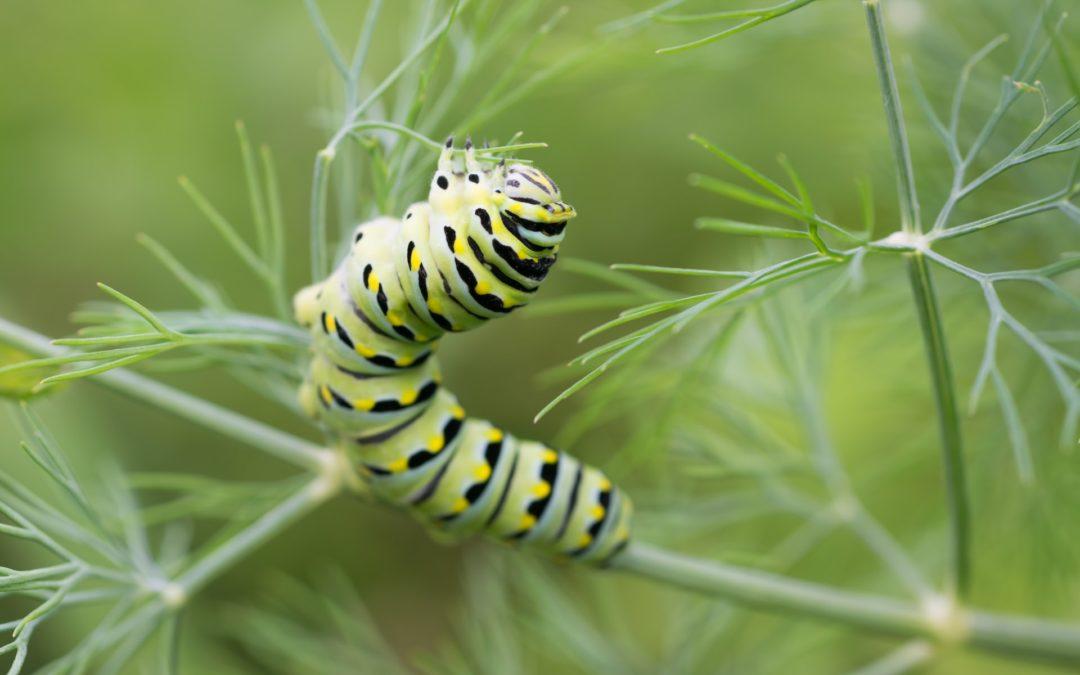Pests are a common problem that gardeners and indoor plant owners face. However, most of the time, pest control solutions can be harmful to both the environment and human health. Chemical pesticides can contaminate the soil, air, and water, leading to serious health issues for humans and animals. Additionally, they can harm beneficial insects that are essential for pollination and control of pests in the ecosystem. For this reason, many people are turning to homemade organic pest control ideas.
Best Homemade Organic Pest Control Remedies
Organic pest control involves using natural ingredients to control and eliminate pests from plants. Organic pest control not only protects the environment and human health but also ensures that your plants are free from harmful chemicals. In this guide, we will explore the top 10 homemade organic pest control ideas that you can use to keep your plants healthy and pest-free.
1. Neem Oil
Neem oil is an excellent organic pest control remedy that can be used to eliminate a wide range of pests, including mites, aphids, and mealybugs. Neem oil contains a natural compound called azadirachtin, which disrupts the growth and development of pests and their eggs. To use neem oil, mix it with water in a ratio of 1:10 and spray the mixture on the affected plants. Repeat the process every two weeks until the pests are eliminated.
Pros:
- Effective against a wide range of pests.
- Safe for humans and pets.
- Doesn’t harm beneficial insects like bees and ladybugs.
Cons:
- Can be expensive compared to other remedies.
- Needs to be reapplied frequently.
- May not be effective against all pests
2. Garlic Spray
Garlic is a natural insect repellent that can be used to keep pests away from your plants. Garlic contains sulfur compounds that create an unpleasant environment for pests, making them avoid your plants. To make a garlic spray, crush several garlic cloves and mix them with water in a ratio of 1:5. Allow the mixture to steep for a few hours, strain it, and add a few drops of dish soap. Spray the mixture on the affected plants every few days until the pests are eliminated.
Pros:
- Effective against a range of pests.
- Inexpensive and easy to make.
- Safe for humans and pets.
Cons:
- Can have a strong odor that some people find unpleasant.
- May not be as effective as other remedies for some pests.
- Needs to be reapplied frequently.
3. Soap Spray
Soap spray is a natural remedy that can be used to eliminate soft-bodied insects like aphids, mites, and mealybugs. Soap spray works by suffocating the pests and disrupting their cell membranes, leading to their death. To make an organic soap spray, mix a tablespoon of organic liquid soap (e.g. this available on Amazon) with a gallon of water and spray it on the affected plants. Repeat the process every few days until the pests are eliminated.
Pros:
- Simple and inexpensive method
- Effective against soft-bodied pests
- Safe for humans and pets when used properly
Cons:
- Can also harm beneficial insects like ladybugs if not applied correctly
- Needs to be reapplied after rain or heavy moisture
- May damage certain plant species if used in high concentrations.
4. Diatomaceous Earth
Diatomaceous earth is a natural powder that is made from fossilized diatoms. It is an effective organic pest control remedy that can be used to eliminate a wide range of pests, including ants, fleas, and bed bugs. Diatomaceous earth works by dehydrating the exoskeletons of pests, leading to their death. To use diatomaceous earth, sprinkle it on the affected areas and repeat the process every few days until the pests are eliminated.
Pros:
- Effective against a wide range of pests
- Safe for humans and pets when used properly
- Can be used indoors and outdoors
Cons:
- Can be messy and difficult to apply
- Needs to be reapplied after rain or heavy moisture
- Can also harm beneficial insects like bees and butterflies, so use with caution.
5. Pepper Spray
Pepper spray is a natural remedy that can be used to eliminate pests like ants and aphids. Pepper spray works by irritating the pests and making them avoid the affected plants. To make a pepper spray, mix a tablespoon of cayenne pepper or hot sauce with a gallon of water and add a few drops of organic liquid soap. Spray the mixture on the affected plants every few days until the pests are eliminated.
Pros:
- Effective against many types of insects and rodents.
- Inexpensive and easy to make.
- Safe for humans and pets.
Cons:
- Can be irritating to eyes and skin, so caution is needed when using it.
- May not be as effective as other remedies for some pests.
- Needs to be reapplied frequently.
6. Companion Planting
Companion planting involves planting certain plants together to repel pests and attract beneficial insects. For example, planting marigolds alongside tomatoes can repel pests like nematodes and attract pollinators like bees. Additionally, planting herbs like basil and mint can repel pests like aphids and attract beneficial insects like ladybugs. Companion planting is a natural and effective way to control pests and improve the health of your plants.
Pros:
- Natural and eco-friendly method
- Improves plant health and productivity
- Increases biodiversity in the garden
Cons:
- Requires research and planning to determine which plants to use
- May not be as effective against certain pests
- Can lead to overcrowding if not done correctly.
7. Essential Oils
Essential oils like peppermint, lavender, and eucalyptus are natural remedies that can be used to repel pests like mosquitoes, ants, and flies. These oils contain natural compounds that create an unpleasant environment for pests, making them avoid the affected areas. To use essential oils, mix a few drops of the oil with water and spray the mixture on the affected areas. You can also add essential oils to your homemade soap or candle to repel pests indoors.
Pros:
- Effective against some pests, particularly when combined with other remedies.
- Pleasant scent.
- Safe for humans and pets.
Cons:
- Can be expensive.
- May not be effective against all pests.
- Needs to be reapplied frequently.
8. Vinegar
Vinegar is a natural remedy that can be used to eliminate pests like ants, fruit flies, and gnats. Vinegar works by disrupting the pheromone trails that pests use to find their food sources. To use vinegar, mix equal parts of vinegar and water in a spray bottle and spray the mixture on the affected areas. You can also add a few drops of dish soap to the mixture to increase its effectiveness.
Pros:
- Effective against some pests, particularly for cleaning surfaces.
- Inexpensive and easy to find.
- Safe for humans and pets.
Cons:
- May not be effective against all pests.
- Strong smell that some people find unpleasant.
- Can damage some surfaces if not diluted properly.
9. Sticky Traps
Sticky traps are a natural and effective way to control flying pests like whiteflies and fruit flies. Sticky traps work by trapping the pests on a sticky surface, preventing them from reproducing and causing damage to your plants. To make a sticky trap, cut a yellow or blue card into strips and coat them with a sticky substance like petroleum jelly or honey. Hang the strips near the affected plants and replace them every few days until the pests are eliminated.
Pros:
- Effective against crawling insects like roaches and ants.
- Inexpensive and easy to use.
- Safe for humans and pets.
Cons:
- Can be unsightly and messy.
- May not be effective against flying insects.
- Needs to be replaced frequently.
10. Coffee Grounds
Coffee grounds are a natural remedy that can be used to repel pests like slugs and snails. Coffee grounds contain natural compounds that create an unpleasant environment for these pests, making them avoid the affected areas. To use coffee grounds, sprinkle them around the base of the affected plants and repeat the process every few days until the pests are eliminated.
Pros:
- Effective against slugs and snails.
- Inexpensive and easy to obtain.
- Can be used as fertilizer for plants.
Cons:
- May not be effective against all pests.
- Can attract other pests like ants.
- Needs to be reapplied frequently.
11. Nematodes
Nematodes are microscopic worms that are used to control soil-dwelling pests like grubs, weevils, and root maggots. They work by entering the bodies of the pests and releasing bacteria that kills them. Nematodes are available in many garden stores and can be applied by mixing them with water and spraying them on the affected areas.
Pros:
- Effective against soil-dwelling pests
- Safe for humans and pets
- Can be used in both large and small gardens
Cons:
- Expensive compared to other methods
- Needs to be applied at the right time for maximum effectiveness
- Can harm beneficial insects if not applied correctly.
12. Copper Tape
Copper tape is a natural and effective method for repelling slugs and snails. It works by giving off a small electrical charge that repels the pests. Copper tape can be placed around the base of pots or around garden beds to create a barrier that slugs and snails cannot cross.
Pros:
- Safe and natural method
- Effective against slugs and snails
- Long-lasting and durable
Cons:
- Can be expensive compared to other methods
- May not be effective against other pests
- Needs to be applied correctly for maximum effectiveness.
13. Salt spray
Salt spray can be effective in controlling pests like spider mites and aphids. Simply mix a tablespoon of salt with a gallon of water and spray onto plants.
Pros:
- Effective against some pests, particularly spider mites.
- Inexpensive and easy to make.
- Safe for humans and pets.
Cons:
- May not be effective against all pests.
- Can damage some plants if not diluted properly.
- Needs to be reapplied frequently.
14. Cinnamon
Cinnamon can be used to repel ants and other pests. Simply sprinkle cinnamon around plants or create a barrier around the garden.
Pros:
- Effective against some pests, particularly ants.
- Pleasant smell.
- Safe for humans and pets.
Cons:
- May not be effective against all pests.
- Needs to be reapplied frequently.
- Can be messy if not applied carefully.
15. Beer traps
Beer traps can be used to attract and trap slugs and snails. Simply place a shallow dish of beer in problem areas and the pests will be attracted to the scent and drown in the liquid.
Pros:
- Effective against slugs and snails.
- Inexpensive and easy to make.
- Can be used as fertilizer for plants.
Cons:
- May attract other pests like flies.
- Can be unsightly and messy.
- Needs to be replaced frequently.
Other organic pest control remedies:
- Hot pepper spray: Hot pepper spray can be made by blending hot peppers with water and straining the mixture. It can be used to repel pests like aphids, spider mites, and thrips by spraying onto plants.
- Citrus peels: Citrus peels can be used to repel pests like ants and aphids. Simply place citrus peels around problem areas or blend them with water and spray onto plants.
- Molasses: Molasses can be used as a natural insecticide to control pests like aphids, mites, and whiteflies. Simply mix a tablespoon of molasses with a gallon of water and spray onto plants.
- Baking soda: Baking soda can be used to control powdery mildew on plants, which is a common fungal disease. Simply mix a tablespoon of baking soda with a gallon of water and spray onto plants.
- Onion spray: Onion can be used to repel pests like aphids and mites. Simply blend onion and garlic with water and strain the mixture, then spray onto plants.
- Mint: Mint can be used to repel pests like ants and mice. Simply plant mint around problem areas or crush mint leaves and sprinkle around plants.
In conclusion, there are many natural and eco-friendly methods for controlling pests in the garden. By using homemade organic pest control remedies and other natural remedies, you can protect the environment, human health, and the health of beneficial insects while still effectively controlling pests. However, it is important to keep in mind that not all methods are equally effective against all pests, and some may require more effort or planning than others. It is also important to use these methods correctly and safely to avoid harming beneficial insects or damaging plants.
When choosing a homemade organic pest control method, consider the specific pests you are dealing with, as well as the type of plants and the size of your garden. Some methods may be more effective for certain pests or for certain types of plants, while others may be more practical for larger gardens or for use indoors.
It is also important to remember that natural pest control methods may take longer to work than chemical pesticides, and may require more effort and persistence to achieve the desired results. However, by using these methods consistently and in combination with other preventative measures, you can effectively control pests while promoting a healthy and thriving garden ecosystem.
Overall, using homemade organic pest control methods is not only better for the environment and human health, but it can also lead to a more fulfilling and rewarding gardening experience. By using natural remedies and taking a holistic approach to pest control, you can create a sustainable and thriving garden that is free from harmful chemicals and pests.
Some other good tips on how to deal with pests naturally:
Read also: TOP 20 Benefits of Organic Gardening
The Most Popular on BitGlint

20 Overthinking Examples & Definition
Overthinking is something we all experience, but it becomes a problem when it starts to control our thoughts and...

Fairness: 20 Real Life Examples & Definition
Fairness is something we all recognize, whether as children on the playground or as adults at work. It’s about...

25 Examples of Soft Power in International Relations
Countries today use more than just military or economic force to shape the global landscape. They increasingly rely on...

20 Patience Examples You Can Use Daily
Life moves quickly, and we’re often used to getting things right away. But learning how to wait and manage our...

Top 100 Essential Travel Items
Planning your next trip and not sure what to pack? Don’t worry, we’ve got you covered! Whether you’re a frequent...

Culture of Silence: 20 Examples & Definition
In many communities and organizations, the "culture of silence" is a powerful...

20 Key Concepts in International Relations
International relations (IR) is a broad discipline that explores how countries and other global actors interact. From...
Get Inspired with BitGlint

